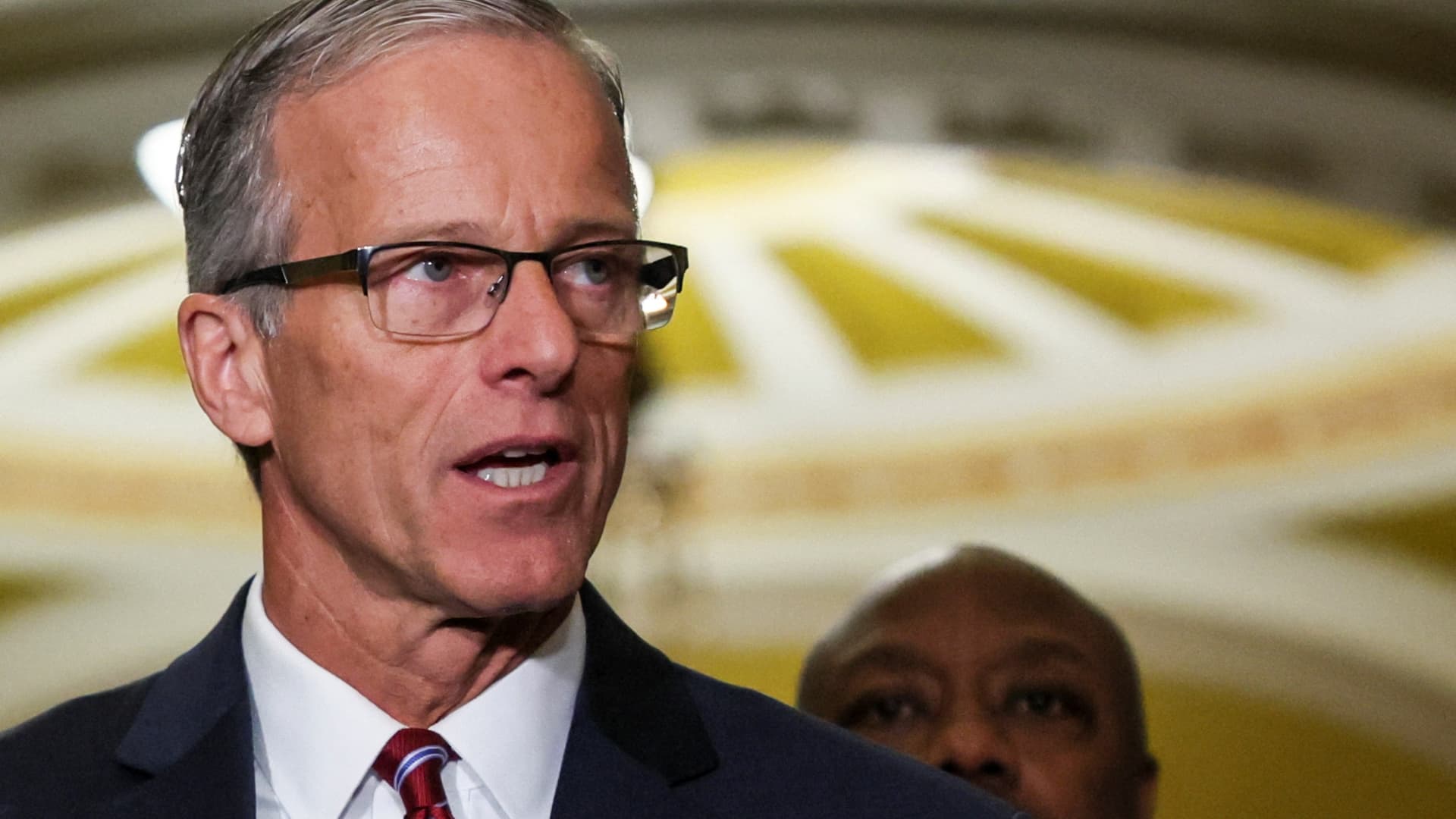In an aerial view, a container ship is seen docked at the Port of Oakland on April 18, 2025 in Oakland, California.
Justin Sullivan | Getty Images
Businesses dealing with the early stages of President Donald Trump’s tariffs are looking for ways to pass increasing costs onto consumers, according to a Federal Reserve report Wednesday.
As Trump ordered against-the-board levies on U.S. imports and higher duties on Chinese products, the Fed’s “Beige Book” indicated how they plan to proceed. Companies reported getting notices from suppliers about rising costs, and they looked to find ways not to absorb the increases while noting uncertainty over the ability to pass them along to customers.
“Most Districts noted that firms expected elevated input cost growth resulting from tariffs,” the report said. “Many firms have already received notices from suppliers that costs would be increasing.”
Broadly speaking, the report — which comes out about every seven weeks — characterized economic growth as “little changed” from the March 5 report, though it noted that “uncertainty around international trade policy was pervasive across” the Fed’s 12 districts.
Prices generally rose during the period, which included Trump’s April 2 “liberation day” announcement of the blanket tariffs. Employment was “little changed” amid falling headcounts in government jobs.
“Firms reported adding tariff surcharges or shortening pricing horizons to account for uncertain trade policy,” the report stated. “Most businesses expected to pass through additional costs to customers. However, there were reports about margin compression amid increased costs, as demand remained tepid in some sectors, especially for consumer-facing firms.”
In the New York area, firms reported rising prices particularly in food and insurance along with construction materials. Manufacturers and distributors said they already are adding surcharges due to shipments.
There also were signs of problems in the trade dispute with Canada: Tourists are booking fewer hotel rooms in New York City and at least one tech firm reported losing business contacts in Canada.
“The outlook for service sector firms worsened noticeably, with contacts anticipating a sharp decline in activity in the coming months. Service sector firms reported a major pullback in planned investment,” the report said.
Elsewhere in the report, service organizations dependent on government support noted difficulties since the White House began culling through agencies that get federal aid. The report specifically cited food banks in New York as seeing cuts in programs and personnel.
“Contacts at non-profits and other community-based organizations expressed significant concern about the future of federal funding and services support, creating challenges in staffing, strategy, and planning,” the report said.
Get Your Ticket to Pro LIVE
Join us at the New York Stock Exchange!
Uncertain markets? Gain an edge with CNBC Pro LIVE, an exclusive, inaugural event at the historic New York Stock Exchange.
In today’s dynamic financial landscape, access to expert insights is paramount. As a CNBC Pro subscriber, we invite you to join us for our first exclusive, in-person CNBC Pro LIVE event at the iconic NYSE on Thursday, June 12.
Join interactive Pro clinics led by our Pros Carter Worth, Dan Niles, and Dan Ives, with a special edition of Pro Talks with Tom Lee. You’ll also get the opportunity to network with CNBC experts, talent and other Pro subscribers during an exciting cocktail hour on the legendary trading floor. Tickets are limited!




